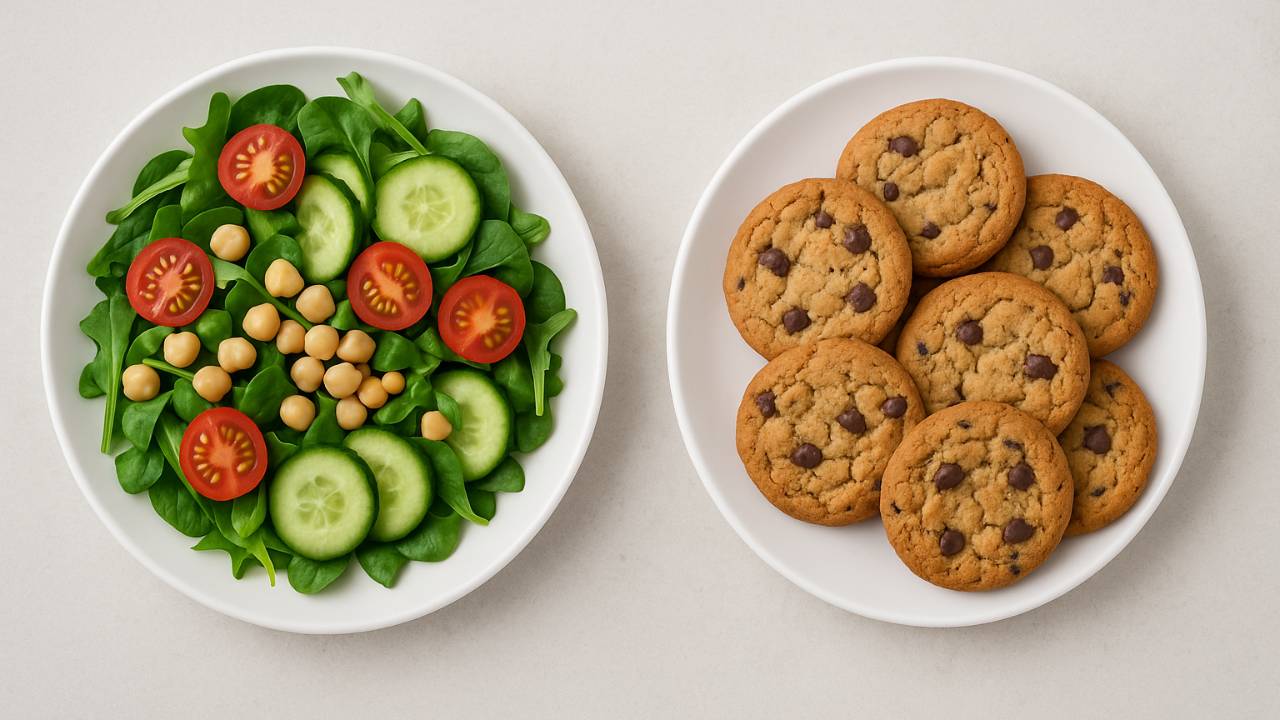Overeating or Binge Eating Disorder? Understanding the Signs
Sep 15, 2025
“I had a binge this weekend” or “I’ve been binging all day”. We hear it all the time right? The word binge gets thrown around a bit, but was it really binge eating? Or did you just eat a lot of food? Or… did you just eat more than your current diet plan tells you to?
Let me start with this, Binge eating disorder is not just eating a lot of food. It’s so much more than that.
Binge eating is a reaction to unmet needs, it’s a trauma response that has become a way of coping. For many, it can provide a sense of escape. The feeling of being uncomfortably full is the only time you can truly disconnect from whatever negative emotion you are experiencing. It can feel like an out-of-body experience where your brain completely switches off during the act of binging.
But it is quickly followed by feelings of sadness, disappointment, stress, guilt, shame, and even disgust. It’s mostly done in secret and any evidence of the binge is hidden or thrown away to make sure nobody will ever find out.
Binge Eating Disorder is a recognised mental health condition and it’s actually the most prevalent of all eating disorders. Characteristics of BED according to the DSM are:
1. Eating, in a discrete period of time (e.g., within any 2-hour period), an amount of food that is definitely larger than most people would eat in a similar period of time under similar circumstances
2. The sense of lack of control over eating during the episode (e.g., a feeling that one cannot stop eating or control what or how much one is eating)”
Binge Eating is described as:
- Eating until feeling uncomfortably full
- Eating large amounts of food when not feeling physically hungry
- Eating alone because of being embarrassed by how much one is eating
- Feeling disgusted with oneself, depressed, or very guilty after overeating”
(DSM-IV and DSM-5 diagnostic criteria for binge-eating disorder)
Binge eating behaviours are also incredibly common after long-term periods of restrictive dieting. Studies have shown that even healthy adults with no prior food issues can develop binge eating behaviours after being in an extreme calorie deficit - with these patterns sometimes lasting well beyond the period of dieting.
If you’ve experienced this cycle yourself, the Nourish to Thrive™ program is designed to help you break free. You can explore it today through the free trial.
Interested to try out Nourish to Thrive™? Sign up below to access the first session, for free!
Sign up for the Free Welcome Session!

